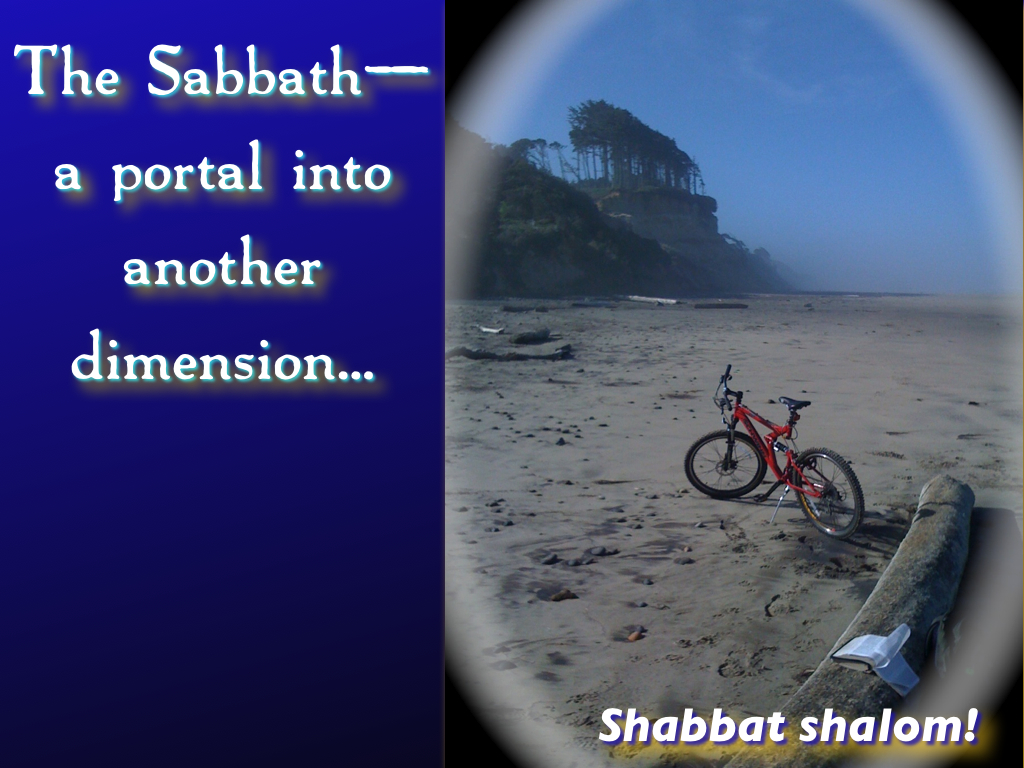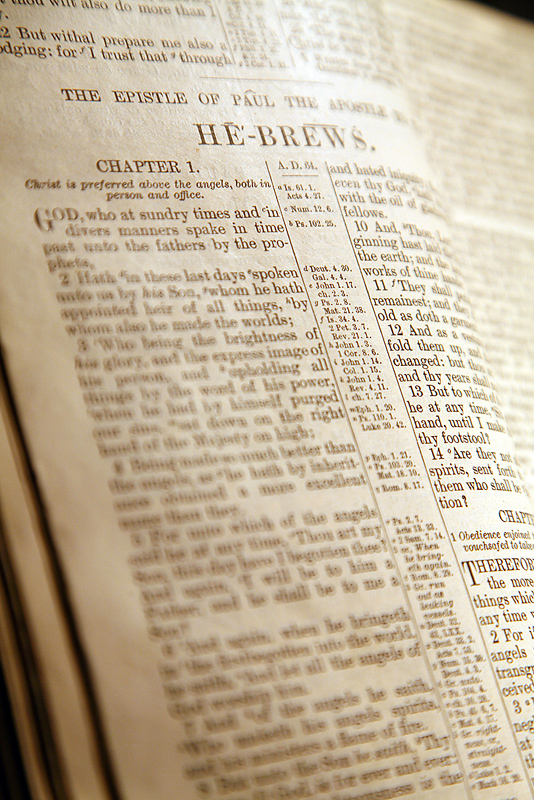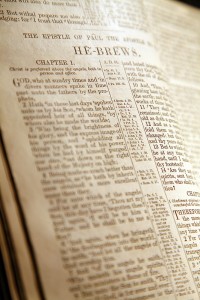I had to write this article a few years ago because a notable Hebrew roots teacher suddenly began promoting the idea that the Book of Hebrews was an invention of the Catholic Church and didn’t belong in the NT canon of Scripture. So far as I know, this teacher hasn’t recanted of his errant and heretical position to this day. Since then, other Hebrew roots teachers have come out advocating the additions of books to the canon of Scripture (the books of Enoch and Jahser).
This ministry dogmatically holds to the view that the books contained in the Bible as we currently have it is the inspired word of Elohim with no additions or subtractions.
I hope this article helps someone and will strengthen their faith in the Word of Elohim.
[The following is excerpted from a larger work by the same author entitled, “Can You Trust the New Testament Canon as YHVH’s Divine Word?” at http://www.hoshanarabbah.org/pdfs/nt_canon_full.pdf.]
The Uniqueness of the Bible
The Bible. There has never been any book like it. Its authors included kings and peasants and it was written over a span of 1500 years and 40 generations by 40 authors writing from palaces to jail cells. It was first translated into a foreign language circa 250 B.C. and has since, in whole or in part, been translated into several thousand languages or dialects. It has survived time. Though printed on perishable materials and recopied countless times over the past 2000 years by hand and by press, the main style and message of this book has never changed. The Bible has withstood vicious attacks of its enemies as no other book. Since Roman times, governmental and religious authorities have tried to ban it, burn it and outlaw it, but to no avail. It is still the most widely published and read book of all time (McDowell, pp. 13–24). Why?
Many have willingly given their lives to translate it, smuggle it, distribute it, preach its message or even simply possess a copy of it. Why? More than two billion people on earth today, about one-third of earth’s population claim to be followers of the Bible. Why? Nearly 50,000 people are currently martyred each year for refusing to budge from their faith in the Bible’s message. Why?
The answer is simple. Regardless of the language into which the Bible has been translated, regardless of the liberal or conservative biases of the translators, one thing is certain: The redemptive and salvation message of the Bible always comes through. It is a life-changing message of hope. Why? Because its pages contain words that have the power to change lives dramatically for good, for eternity. Why? Because these words are not the words of men, but of the Creator of men—of YHVH Elohim, the God of the Bible. As such, they carry the full force, power and anointing of divine origination. If not, how else can one explain the biblical phenomena? There is no human explanation for it other than the divine hand of YHVH Elohim has been on the Bible from its beginning until this very moment!
Can We Trust the Bible?
In spite of the impact the Bible has had on the lives of billions of souls over the past 2000 years, a question remains: Can you put your trust in every word contained therein? This is an important question, for if the Bible is correct, then whether you live again or not after your physical death will depend on how you orient your life with respect to the biblical message. So can we trust our lives with the words of Scripture—specifically, the message of Yeshua the Messiah as recorded in the Apostolic Scriptures (New Testament)? Are the 27 books which comprise the Apostolic Scriptures in our Bible the true and accurate accounts of the words of Yeshua and his directly commissioned apostles?
In this work we shall see that the 27 books of the Apostolic Scriptures would not have a been acknowledged as being “Canon” if they had not first been recognized by the apostles of Yeshua and the Body of Believers in the first and second centuries A.D. as having the same authority as the earlier Hebrew Scriptures (Old Testament). And the latter Christian church would not have accepted these books as canon, and subsequently affirmed their canonicity if they had not felt that these books carried the weight of apostolic authority. Period! Yet despite this profound and simple truth, many are beginning to question the authority of the New Testament Canon of Scripture.
A Problem: Some Are Questioning the Bible
The Apostolic Scriptures (New Testament) are under fire. Some Messianic/Hebrew roots teachers are currently questioning if the 27 books of the New Testament are all divinely inspired or not. Some are even taking it upon themselves to begin tossing out certain books, such as the Epistle to the Hebrews, from the New Testament canon claiming that it was not divinely inspired and was added later to the canon of Scripture by the proto-Catholic Church. Others claim that the early church fathers “messed” with the original Continue reading →






